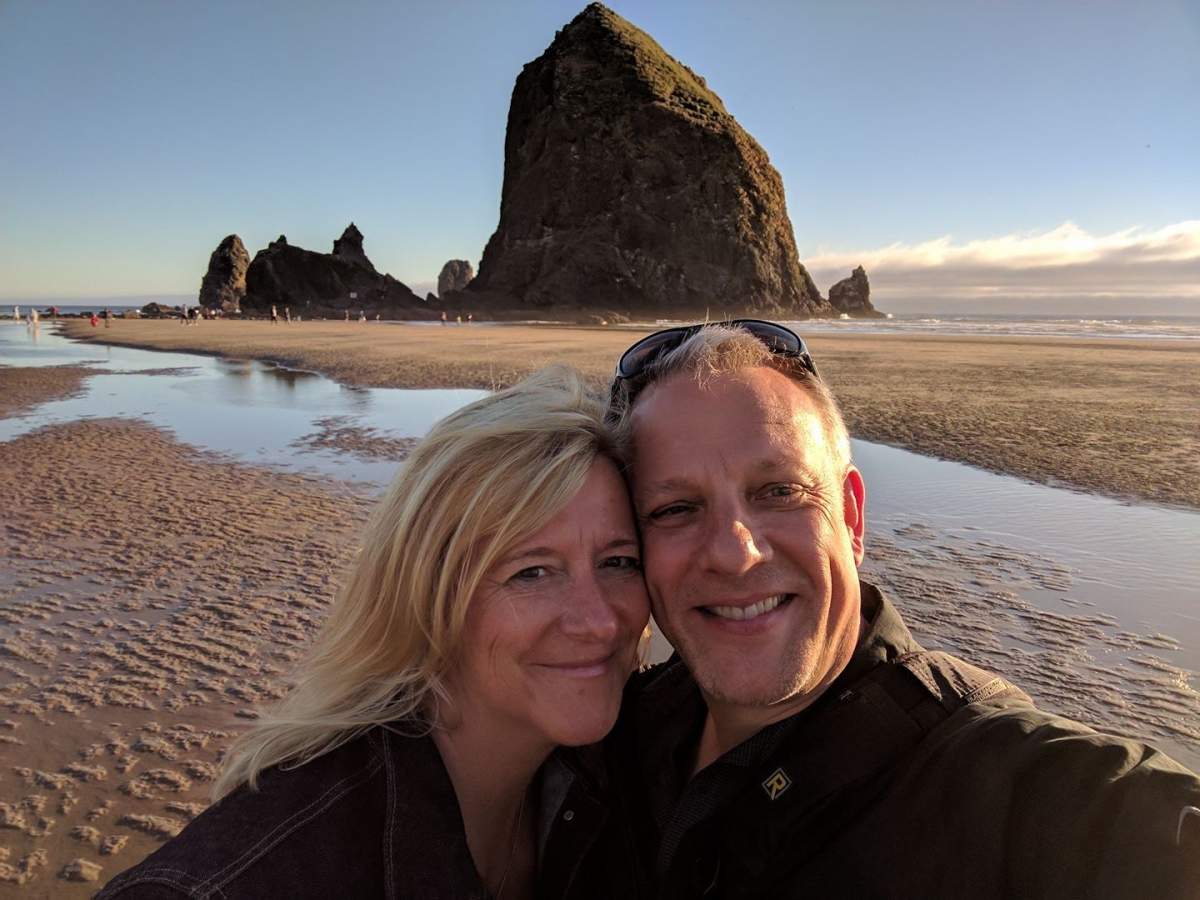Jennifer North and Eric Schoneker aren’t married, but they’re in love.

The couple became friends in high school in White Rock in 1978, but drifted apart until a friend’s memorial three years ago, where they reconnected and fell in love.
When North had breast cancer, Schoneker was there to help her fight. When Schoneker’s mother died, North was there to support him.
Now, they’re separated by a Canada-U.S. border closed to most travellers due to COVID-19. Schoneker, an American, lives near Everett, Wash., while North lives in New Westminster, B.C.
The couple is pleading with the Canadian government to expand exceptions to its pandemic entry policy to include couples in committed romantic relationships.
“It’s kind of like a knife in the heart. I feel desperate. It makes me very sad that the government is taking this hard line,” North told Global News on Sunday.
“It’s a huge emotional and psychological impact. The biggest thing is the uncertainty, not knowing when we’ll really be able to see each other on a regular basis,” said Schoneker.
For the time being, the couple has been limited to visiting across the ditch at Zero Avenue and meeting in Peace Arch Park.

North took a two week trip to Washington in August, but had to find alternative living arrangements for her 87-year-old father while she quarantined upon her return.
“I did it, but it was a sacrifice,” she said.

Get weekly health news
In June, Canada loosened border restrictions to allow parents, spouses or dependent children of citizens or permanent residents to enter the country.
The couple says that exemption is too limited, and has left adult children and other loved ones isolated during a period of intense emotional stress.
Schoneker says he’s willing to abide by a quarantine, be regularly tested, and do “whatever else they deem necessary.”
“The definition of family needs to be changed,” he said.
“(It’s) left an awful lot of committed relationships separated because they don’t qualify.”
Schoneker and North’s situation is far from unique, according to David Edward-Ooi Poon, a medical doctor and the founder of Faces of Advocacy, a group calling for a relaxation of limits on loved ones entering Canada.

Poon estimates the number adult children or committed partners facing entry restrictions to be in the “low tens of thousands.”
His group is not calling for an open border, said Poon, but wants to see the definition of family changed.
“These are fiancees, these are LGBTQ couples, these are people who cannot marry for religious or financial or personal reasons,” he said.
“Given that the NHL has a very good quarantine plan and are allowed into Canada … given that the British Columbia film industry has restarted their shooting … what’s the hold-up in creating a good quarantine plan for committed couples and adult children?”
Faces of Advocacy has developed its own quarantine plan, which Poon said would take care of any concerns about COVID-19.
Under the plan, the Canadian partner or parent of a foreign national would be legally and financially responsible for the person they’re sponsoring.

People entering Canada would be required to pay for their own COVID-19 testing and have health insurance coverage, and would still be required to quarantine for 14 days.
“This is above and beyond what common law couples have to do and above and beyond what married couples have to do,” he said.
On Sunday, federal Health Minister Patty Hajdu said told The West Block she was “happy with the situation as it is,” regarding the border.

But at her Thursday briefing, B.C. provincial health officer Dr. Bonnie Henry hinted that discussions were ongoing about some kind of relaxation of the rules.
“I think we need to consider how we can safely move forward with additional family members — for example, right now, it’s quite restrictive to dependent children and relatives,” said Henry.
“There are also many children who have elderly adult children, who have elderly relatives who need to come back and and care for them or visit with them. So we need to look at how we can do that safely,” she said.
But the lack of a timetable has couples like Schoneker and North feeling anxious and desperate.
“Eric kept saying I’m sure the border will open soon, don’t worry it will open soon. And month after month the border didn’t open,” said North.
“We are not married, but we are definitely each other’s person, and we want to be together.”






Comments
Want to discuss? Please read our Commenting Policy first.